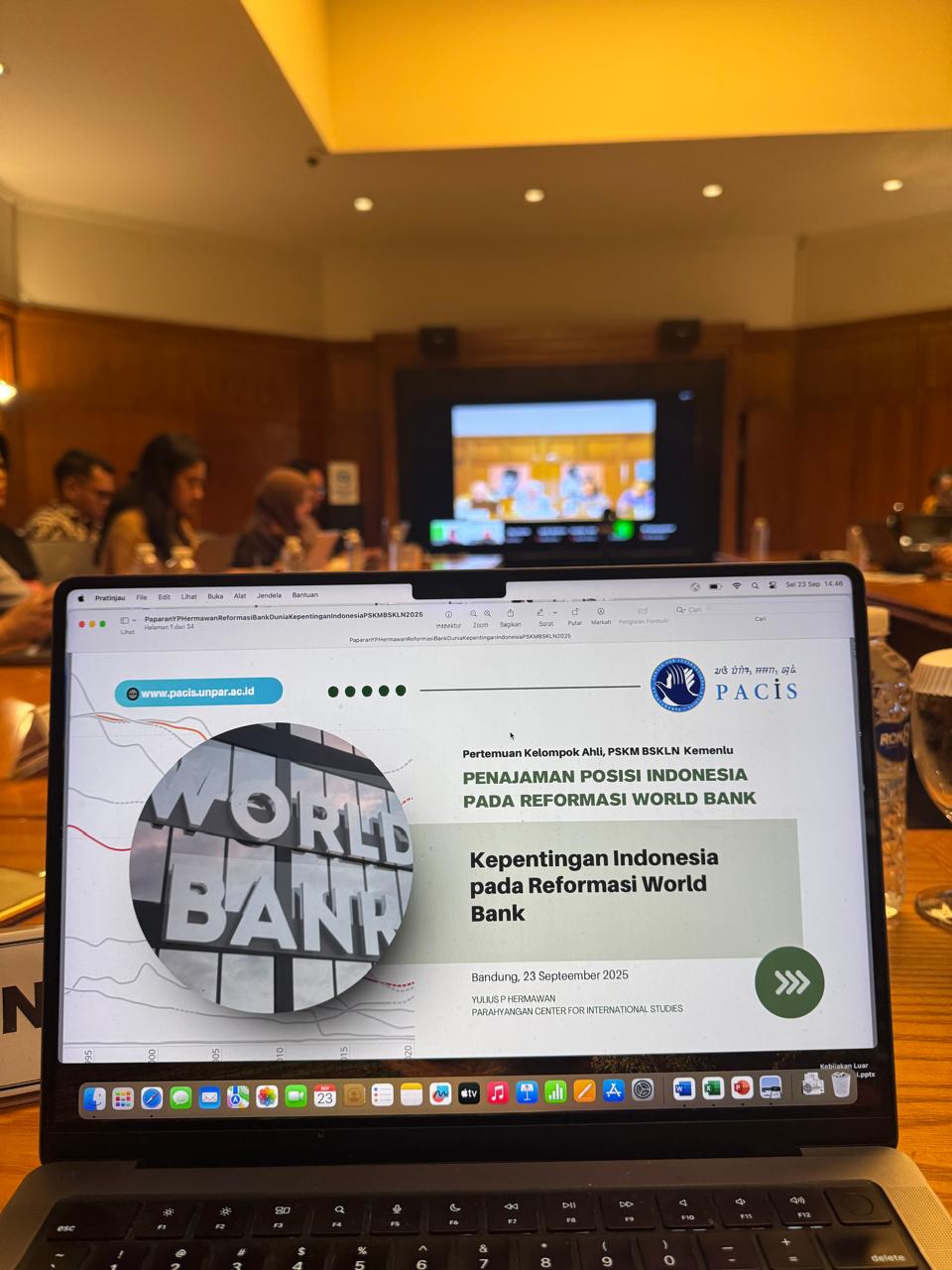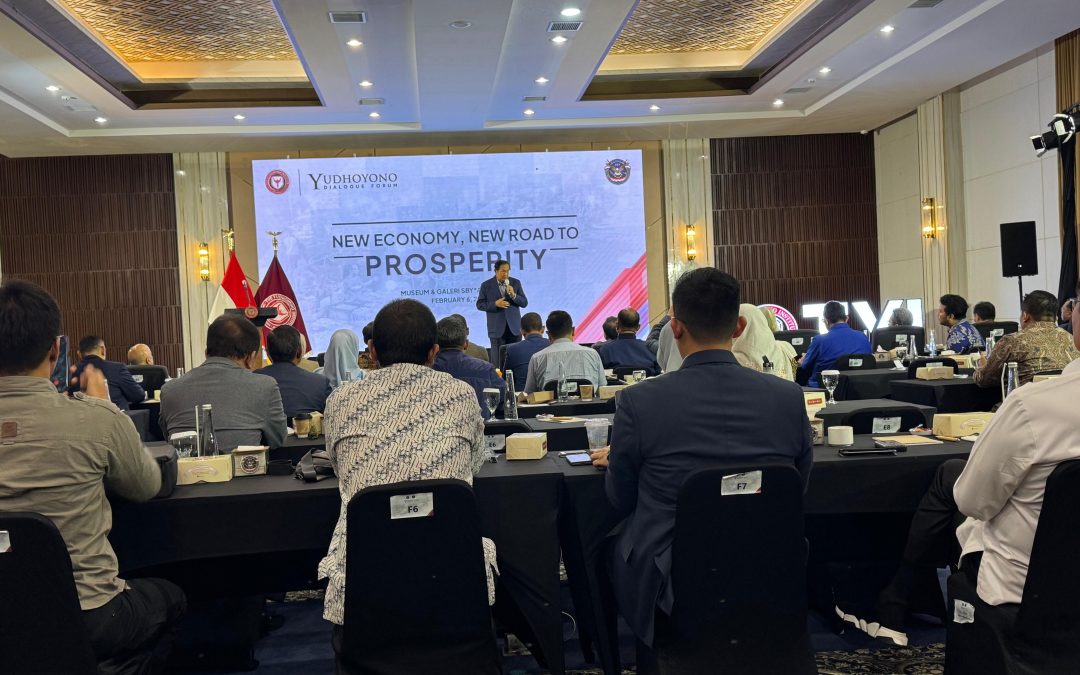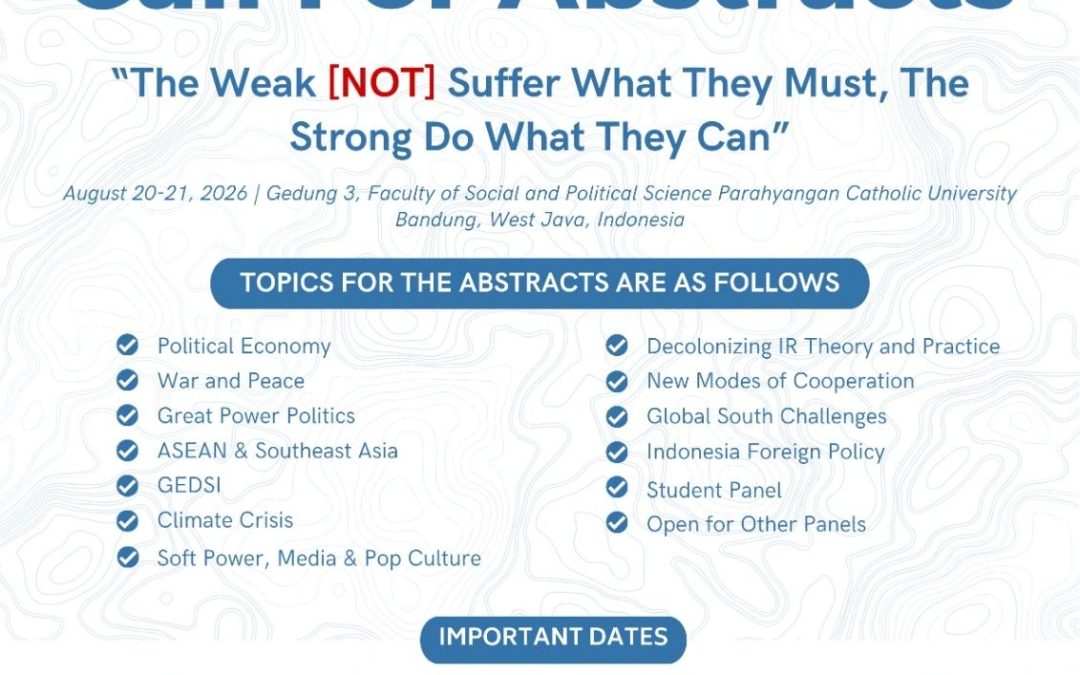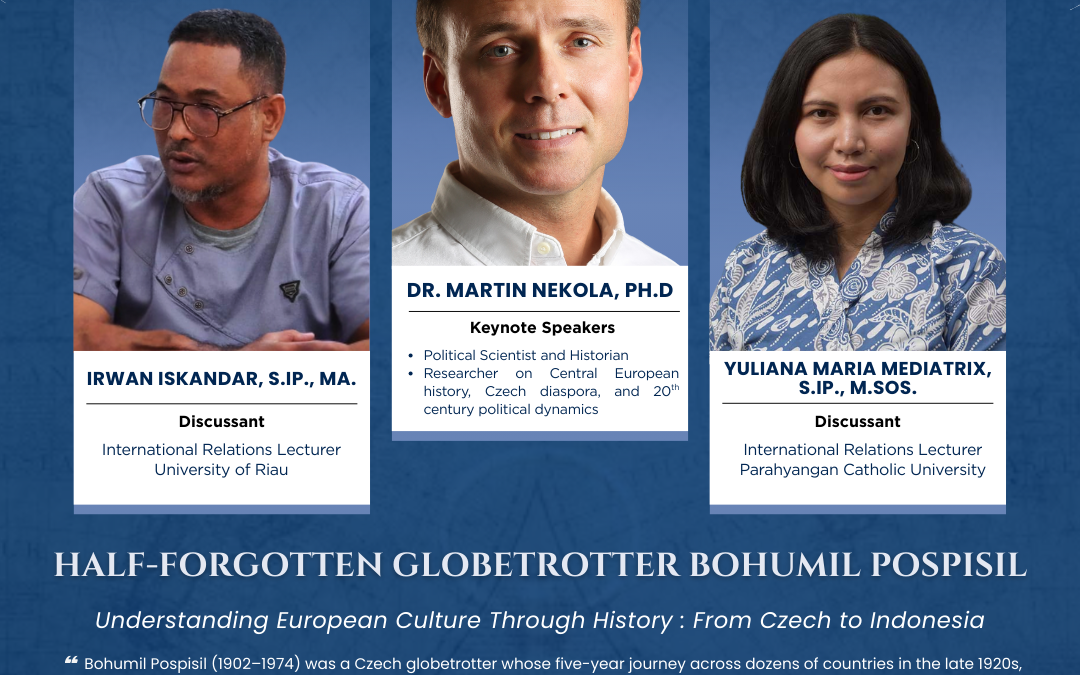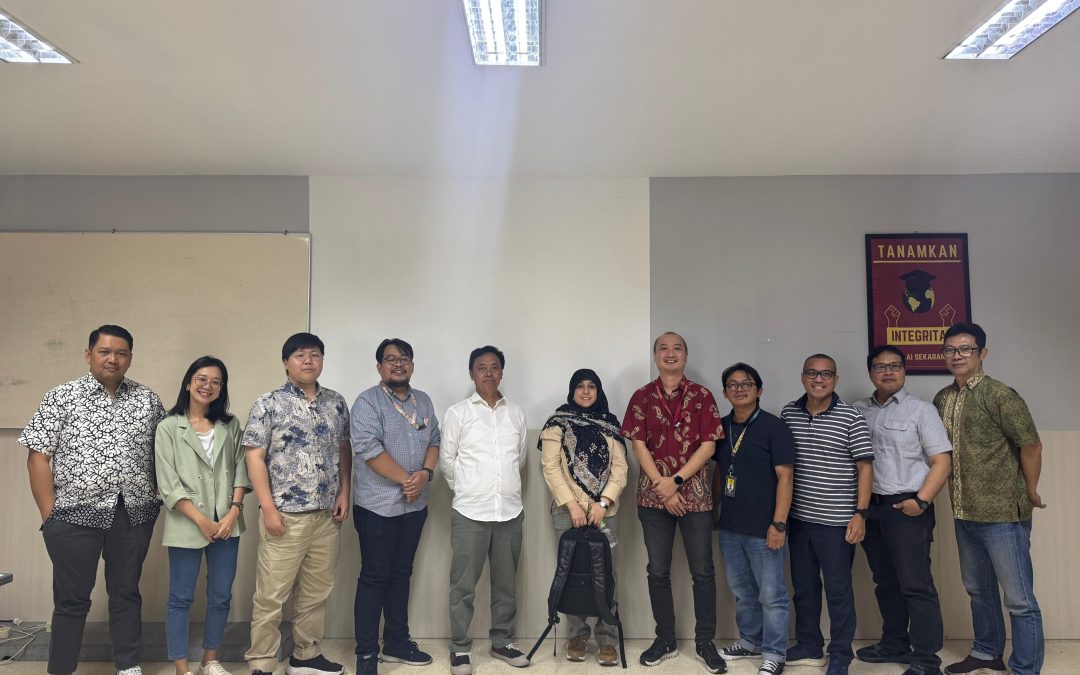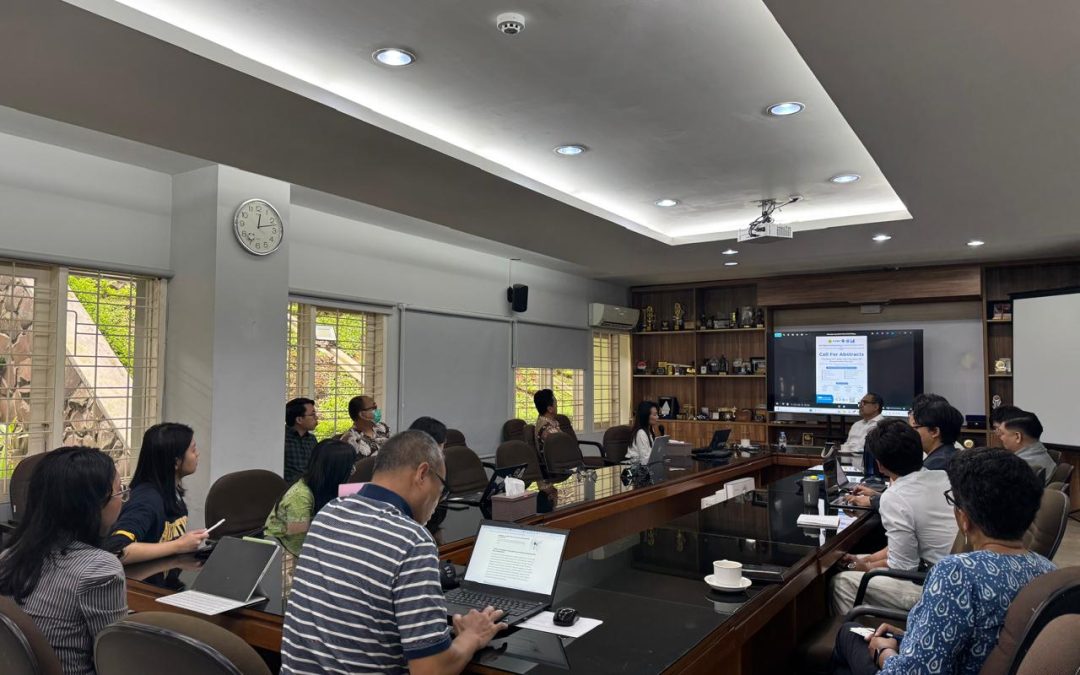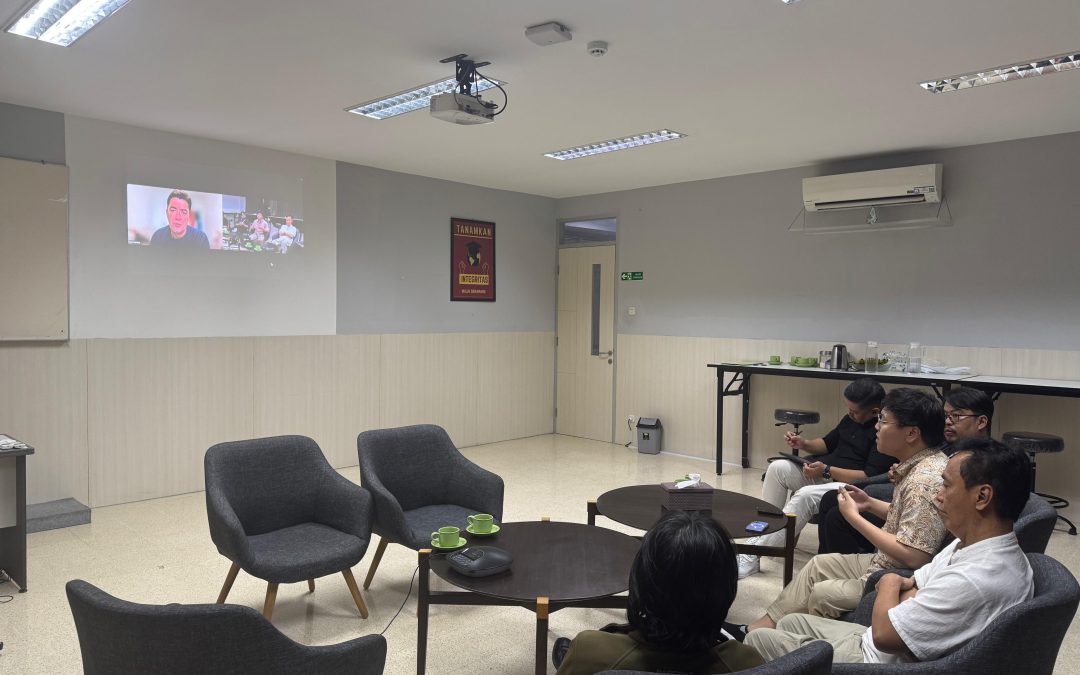Bandung, 23 September 2025: Chairman of the Parahyangan Center for International Studies, Yulius P Hermawan, was invited as a resource person at the Expert Group Meeting “Sharpening Indonesia’s Position on International Monetary Fund and World Bank Reform” organized by the Multilateral Policy Strategy Center (PSKM), Foreign Policy Strategy Agency (BSKLN), Ministry of Foreign Affairs, Indonesia. The meeting was intended to develop Indonesia’s policy strategy in responding to developments in the International Monetary Fund (IMF) and World Bank reform initiatives.
The meeting presented resource persons from Bank Indonesia, the Ministry of Finance, the Think Thank institution from the University of Indonesia, the International NGO Forum on Indonesian Development (INFID) and the Parahyangan Center for International Studies (PACIS). The expert group meeting was opened by the Chair of the Center for Multilateral Policy Strategy at the Ministry of Foreign Affairs and moderated by a Senior Diplomat within the Ministry of Foreign Affairs. Also present as active participants in the meeting were the head of the Master of International Relations study program at Unpar and a number of academics from universities in Bandung, as well as representatives of related Ministries and Institutions.
Indonesia’s interests as Share-holder and Leader of Global South
In his presentation, the Chair of PACIS explained a number of Indonesia’s interests in World Bank reform which were linked to its status as a share-holder, borrower and leader of the Global South and member of the G20.
Yulius P Hermawan started his presentation by highlighting the two main objectives of the World Bank reforms which will be rolled out since the end of 2022. The first is increasing the capacity of the World Bank, namely increasing the capacity of the World Bank to provide loans, including for climate financing & SDGs, but not asking share-holders to add new capital.
The second goal is to expand the mandate by adding a third vision, namely overcoming global challenges better, in addition to the vision of “poverty reduction” and “inequality reduction.” This third mandate includes promoting Global Public Goods (GPG) in the three areas of climate change, pandemics and state fragility, as proposed by the G7 forum.
As stated in the World Bank’s Reform Roadmap, the reform objectives are motivated by the difficulty of eliminating extreme poverty by 2030, while there are many global challenges that have an impact on poverty alleviation in Fragile, Conflict and Violence (FCV) & Low Income Countries (LICs). The World Bank needs additional financial capacity to respond to its more ambitious mission. Given the large funding needs, multilateral financing must catalyze other financial flows. The World Bank has explored scenarios for developing the World Bank Operating Model and financial capacity transformation.
Indonesia is a share-holder of the World Bank with a capital investment value of USD 2,419.7 million (2020). This number ranks Indonesia 23rd out of a total of 189 World Bank members. Indonesia’s voting power in this institution is 0.950. As a share holder, Indonesia has the right to occupy strategic positions at the World Bank which have influence in decision making on the Board of ED. In the 2023-2025 and 2025-2027 periods, Indonesia will occupy the position of ED & Senior Adviser 1. In the 2028-2029 period, Indonesia will have the right to occupy the position of Alternate ED. In its position as a share-holder, Indonesia needs to pay close attention to the impact of World Bank reforms, especially for developing countries. Strengthening the World Bank’s lending capacity will not affect the increase in capital participation of share holders. The World Bank will look for other innovative sources of financing. Indonesia needs to pay close attention to the impact of funding from the private sector – for example related to increasing interest rates which are a burden on the Global South, new global agendas that emphasize the interests of the North (such as green technology which is expensive).
Indonesia needs to ensure its interests in seizing a number of opportunities available at the World Bank, including through ongoing reforms. Indonesia needs to consider increasing Indonesia’s leadership in the Board of Governors, in addition to the Board of ED.
Indonesia needs to continue to encourage increased representation of Indonesian citizens as part of World Bank management by supporting Indonesian citizens to fill top management positions through negotiations between member countries, and identifying and critically reviewing obstacles for Indonesian citizens to work at the World Bank in other positions.
The involvement of the Indonesian private sector in implementing World Bank projects both in Indonesia and in other borrowing countries is currently acknowledged to be limited. For this reason, it is necessary to encourage the involvement of the private sector in these projects.
Indonesia needs to maintain good relations with the largest shareholder countries to provide benefits to Indonesia regarding the rights of key shareholders, because the largest shareholder countries usually have coalitions that have the same interests as its own.
Indonesia also needs to strengthen cooperation with other member countries, especially constituency member countries and developing countries through various multilateral and also bilateral cooperation forums.
Regarding reform initiatives, the reform is directed at evaluating the governance of the World Bank, including: 1. The voting system and structure of the World Bank to better reflect proportional representation of member countries, both developed and developing countries; 2. Increase information transparency in member countries, especially in member countries that do not have positions in the ED office. 3. Apart from the governance side, it is also necessary to encourage operational reform of the World Bank so that it can continuously improve the effectiveness and efficiency of operations, and improve services to member countries.
Indonesia also needs to develop a partnership with the World Bank to support strengthening Indonesia’s role as a country providing new international development cooperation assistance. This includes exploring the potential for co-financing SSTC programs and projects funded by LDKPI (Indonesian AID) to partner countries.
Optimizing the use of the WB’s loan to address extreme poverty
As a borrower of the World Bank, Indonesia needs to ensure that foreign debt from the World Bank and other IFIs are utilized more optimally, efficiently, transparently & with the precautionary principle related to the “three visions of the World Bank.” The use of World Bank foreign debt is focused on alleviating extreme poverty in Indonesia and overcoming inequality in accordance with the World Bank’s vision. Indonesia can also utilize funding from the World Bank to finance climate change adaptation and mitigation (climate financing) in a targeted manner with measurable results. Including Indonesia’s interests is to utilize funding for the renewable energy transition with the principles of prudence and risk sharing, including involving BUMN & the private sector.
The Chair of PACIS emphasized that in responding to the World Bank’s reform initiatives, Indonesia’s position is to ensure opportunities for strengthening Indonesia’s role at the World Bank in World Bank reform. Indonesia needs to pay close attention to initiatives in World Bank reform to strengthen lending capacity: especially regarding the mobilization of innovative sources from the private sector & agendas financed by innovative funding. Indonesia also needs to formulate a strategy to strengthen Indonesia’s role in the World Bank.
It is hoped that the World Bank’s reform initiatives will make the World Bank more effective, efficient and transparent in its vision of alleviating poverty, increasing equity & addressing global challenges in the Global South.
Writer: YP Hermawan

